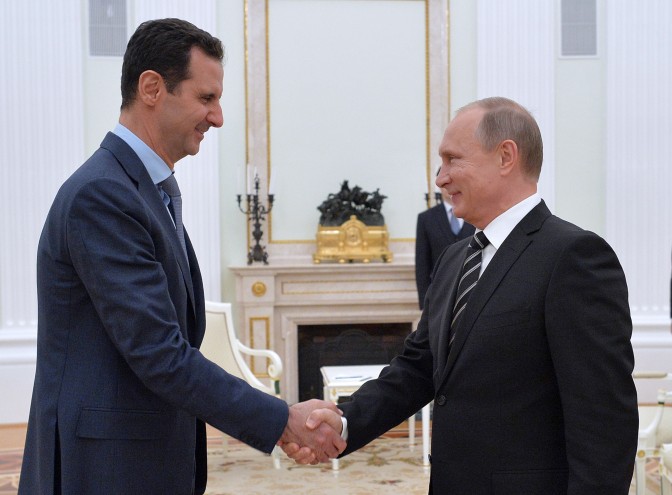How does U.S. foreign policy affect the typical CSUN student? Well, you are stuck with the bill: approximately $4 to $6 trillion. Yes, your taxes for the coming decades, long after you graduate, will go towards paying for the catastrophic interventions by the United States.
While running for President in 2008, Senator Barack Obama promised to end the wars in Iraq and Afghanistan. Sadly, President Obama told the nation that he decided to keep approximately 10,000 U.S. soldiers in Afghanistan through the rest of 2016. This statement comes as there are still approximately 3,000 U.S. troops in Iraq.
The argument about foreign policy is not about Democrats or Republicans, but rather it is intervention versus nonintervention. Should America participate in conflicts all around the world? Should it be the world’s policeman? The answer should be a resounding no. America has nothing to gain by staying in the Middle East and, furthermore, it has gained nothing from going there in the first place.
America has lost thousands of lives, spent trillions of dollars and the Middle East is still coming apart. Albert Einstein called insanity doing the same thing over and over again and hoping for a different result. Well, let’s do something different: this is a call for peace, not an admittance of defeat. It is time for the United States to depart from the Middle East for good.
What have wars and interventions in the Middle East cost the United States? As noted in a new study by Harvard researcher Linda Bilmes, these wars will cost the United States between $4 and $6 trillion. At a time where America’s national debt is about $19 trillion, it is fiscally irresponsible to continue paying for senseless wars and interventions.
Let us look at some of the failures that U.S. interventionism has caused.
After 13 years in Iraq and Afghanistan, there is nothing to show for it. Ironically, we might be in more danger than when the United States first went in. The Iraqis are still unable to take back large swaths of land occupied by ISIS, and Afghan forces have suffered recent losses to Taliban forces. After 13 years, why stay?
The difference between a war and intervention is important. America is at war in Iraq and Afghanistan because Congress has declared war in those specific countries.
Interventions are not wars but they are essentially the same thing. Currently, American military “interventions” include Syria, Libya, Yemen, Somalia and many more. America still contributes money, weapons, logistical and military intelligence to these interventions. This is important because by calling military engagements “interventions,” Congress and the President have slyly gone to war without actually calling it “war.”
An example is Benghazi. Yes, the committee hearing was long, redundant and pointless. But the only serious question that needed to be answered was not asked: Why were U.S. personnel in Libya in the first place?
“The committee is a farce by both [Democrat and Republican] sides, and neither has told the public why Ambassador Chris Stevens was even in Libya,” Adena Mosesian Kashani, President of the Political Science Student Association said. “As far as foreign policy goes, they both have the same views. Peace was not discussed, it was just a blame game.”
If there is anyone to blame for Benghazi, it is the interventionists in both parties because they both supported the intervention in Libya. The American intervention in Syria is a serious and embarrassing disaster. Billions have been spent by the United States and its allies to try and overthrow President Bashar al Assad. But over the four years since the conflict started, rather than making Syria safer, hundreds of thousands have been killed and millions displaced from the region.
Not only has American foreign policy failed in the region, it has opened up the door for Iran and Russia to accumulate power and influence in the region. Russia and Iran are supporting the Syrian government, and so the United States is essentially in a proxy war with both countries. For the record, the U.S. has not declared war in Syria, and yet U.S. pilots have bombed hundreds of targets in Syria. Is this not a dangerous precedent? The president can send U.S. soldiers and personnel anywhere in the world without even a note to Congress or the American people.
With this brief description of the America’s disastrous foreign policy, is there any presidential candidate that advocates for peace and the complete withdrawal from the Middle East? Sadly, no.
As secretary of state, Hillary Clinton supported military intervention in Syria and Libya, and as a United States senator she voted for the war in Afghanistan and Iraq. Senator Bernie Sanders voted for the war in Afghanistan and recently voiced support for airstrikes in Syria [which have already killed hundreds of civilians]. To make matters even worse, Republicans are even more confrontational when it comes to foreign policy.
There are people who believe America must be the world’s policeman, imposing its will whenever and wherever. But history tells us that military intervention causes more harm than help. America should withdraw from the Middle East with its head held up high.
We tried, we really did. But it is time to bring our troops home. With the Middle East in pieces, every CSUN student should view peace as America’s only option.






